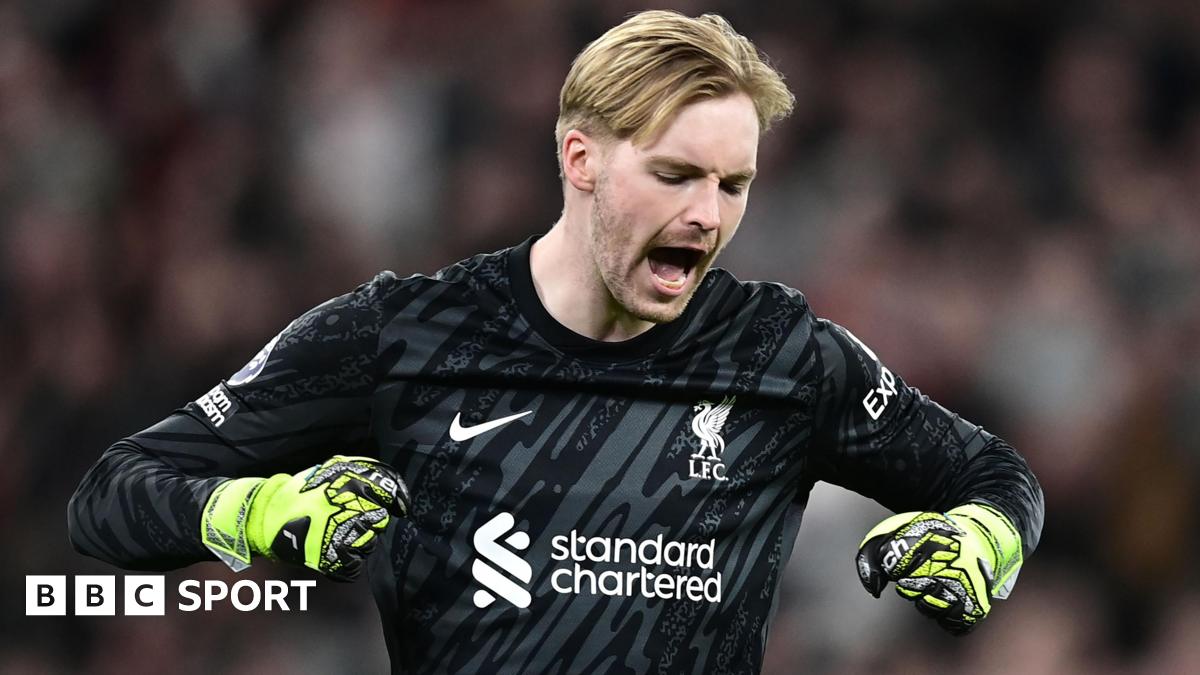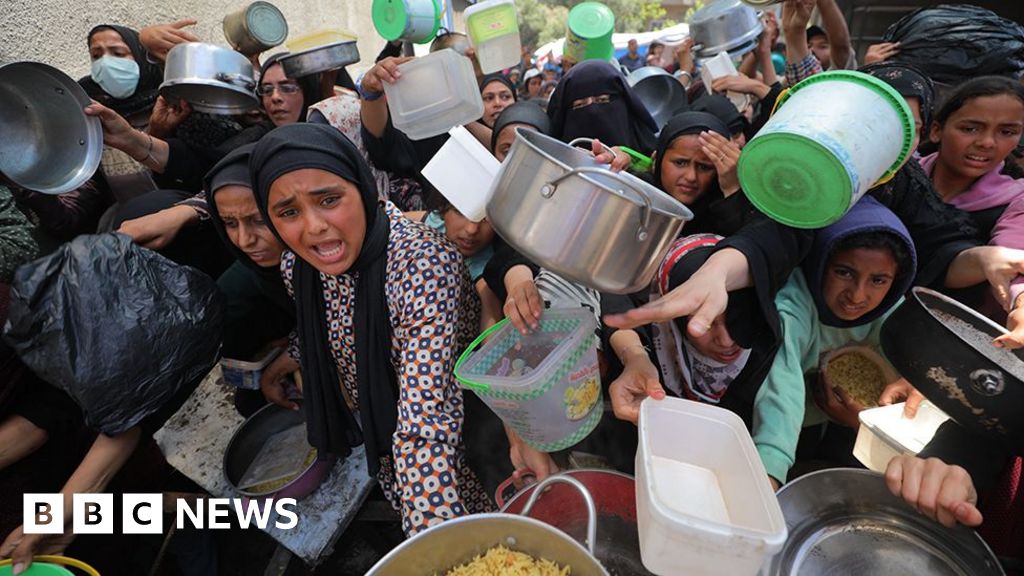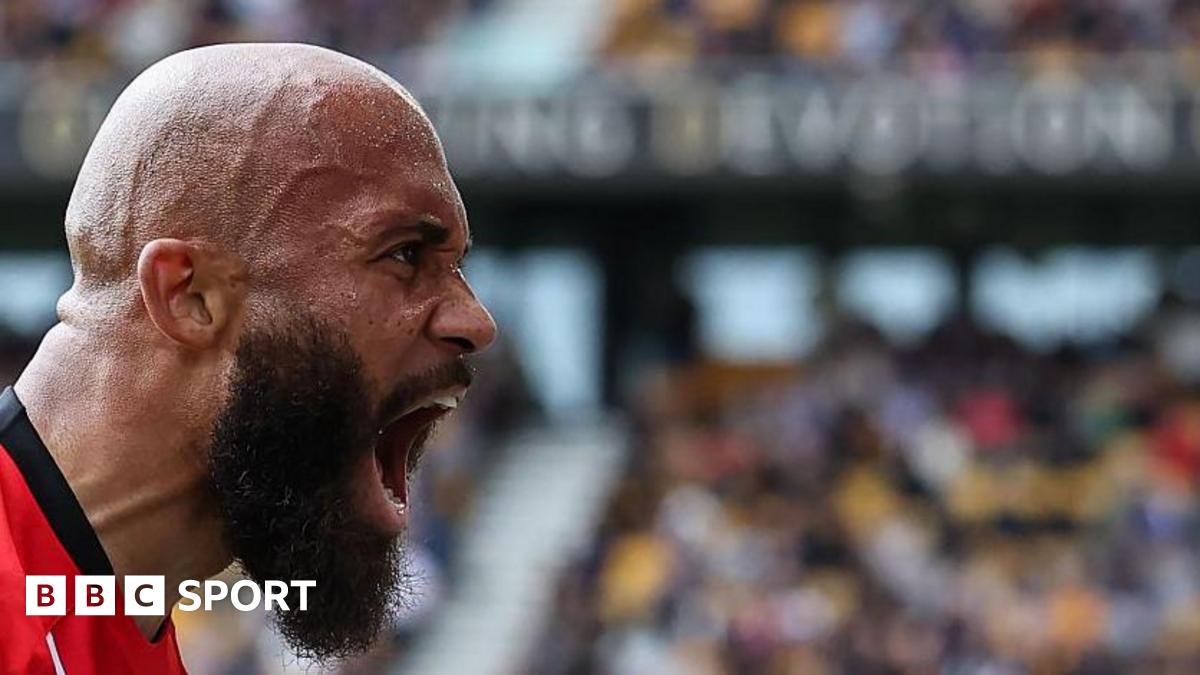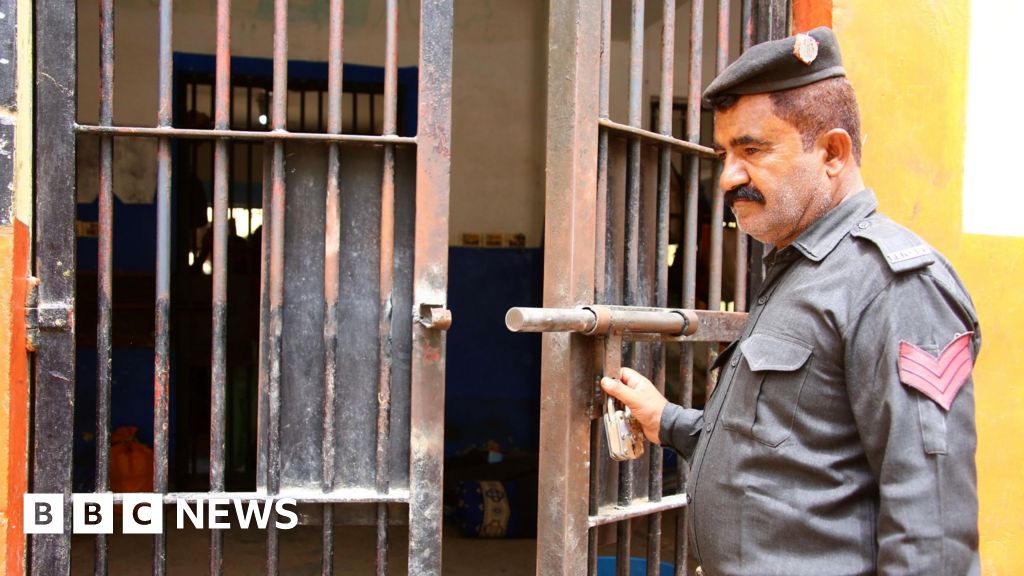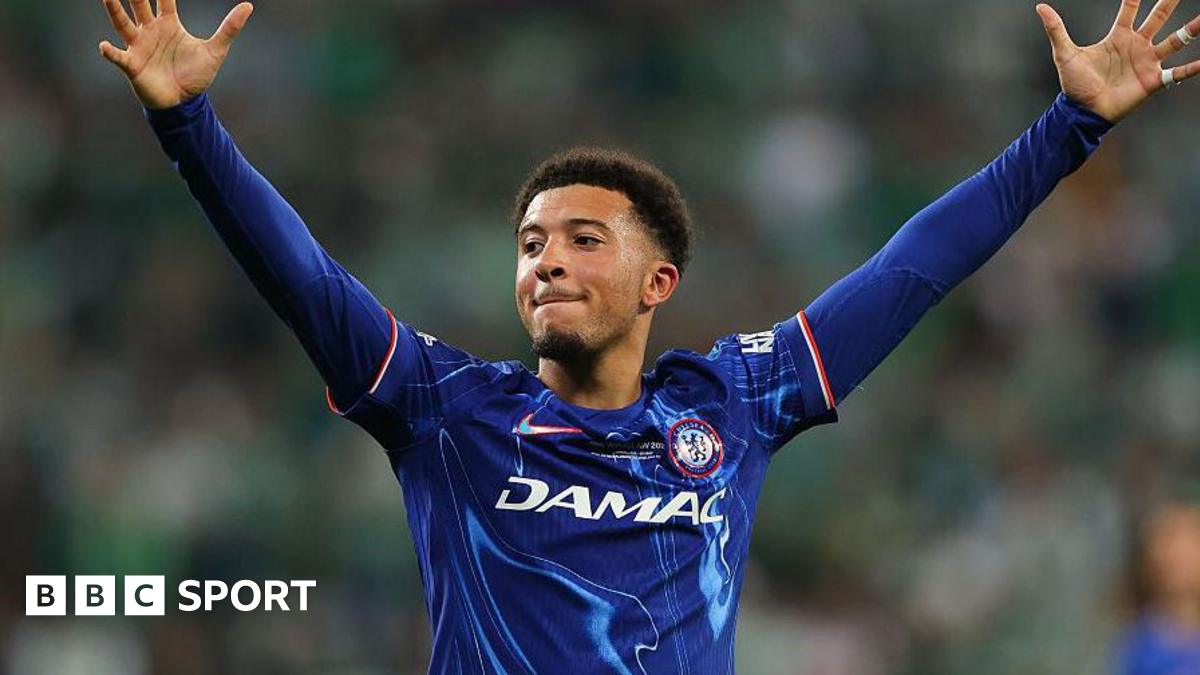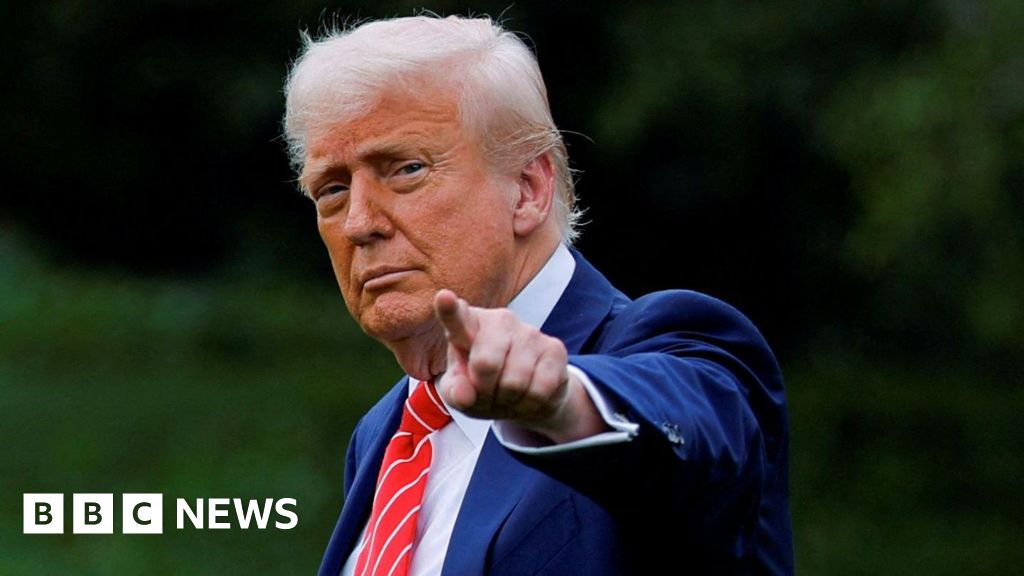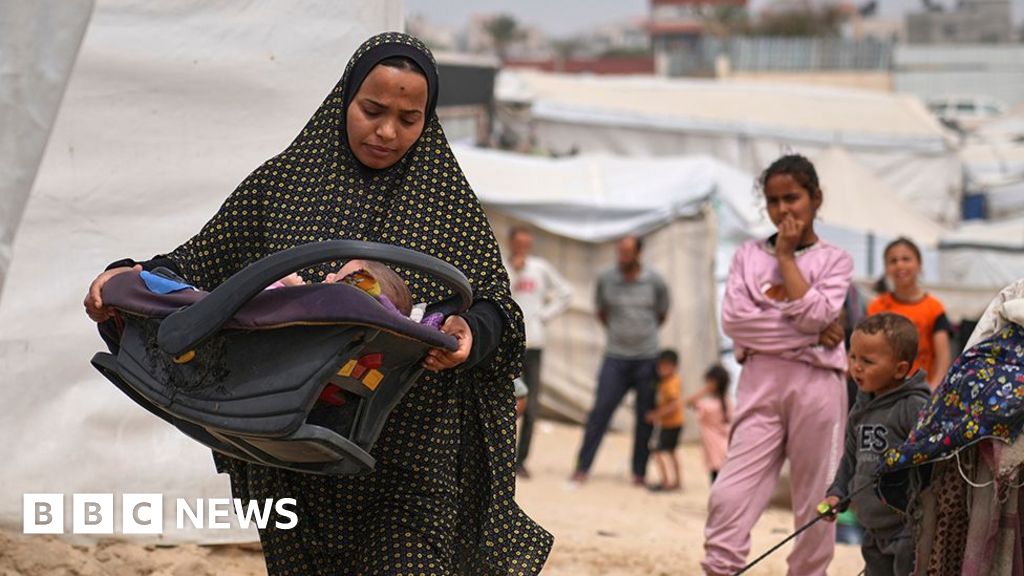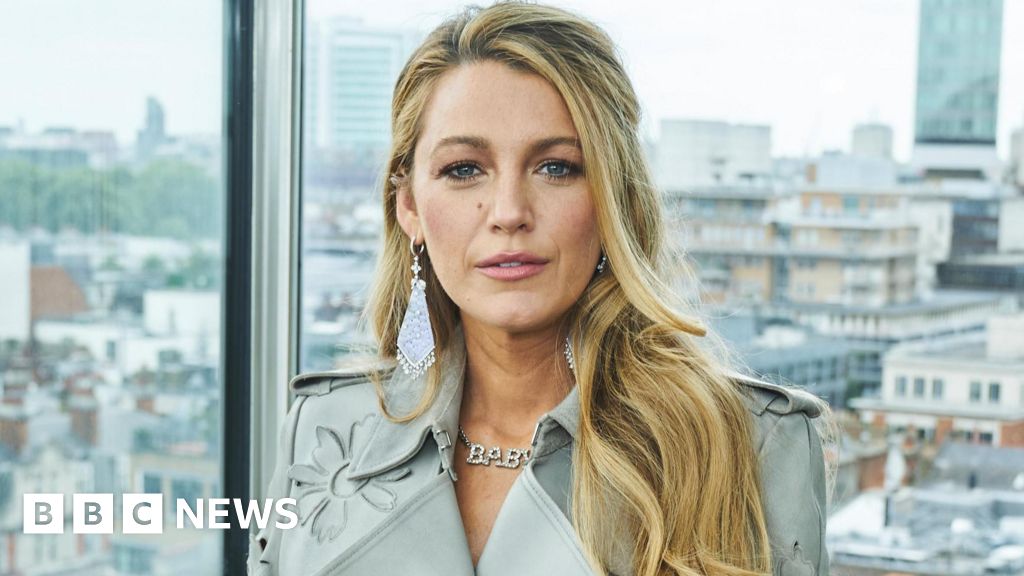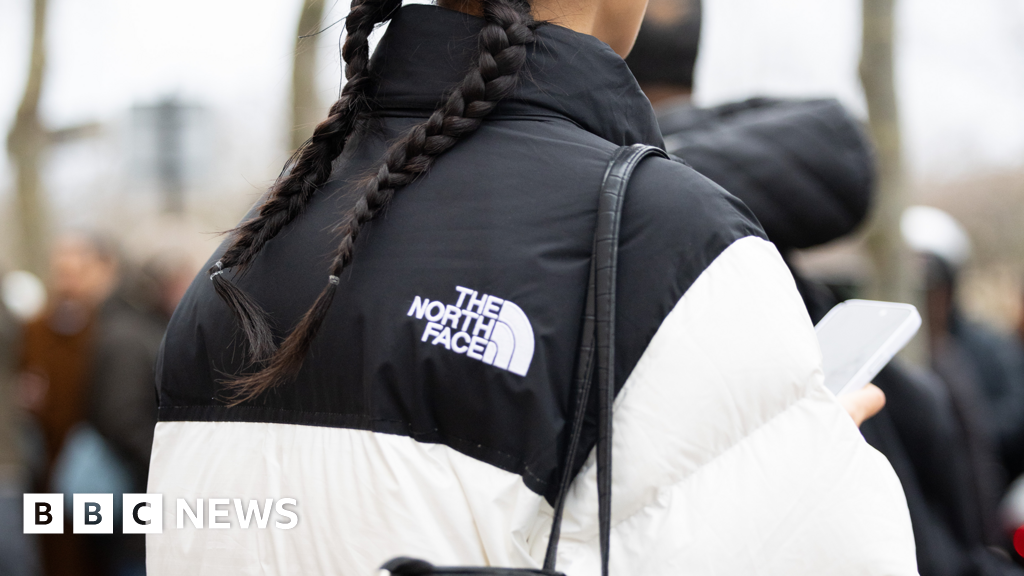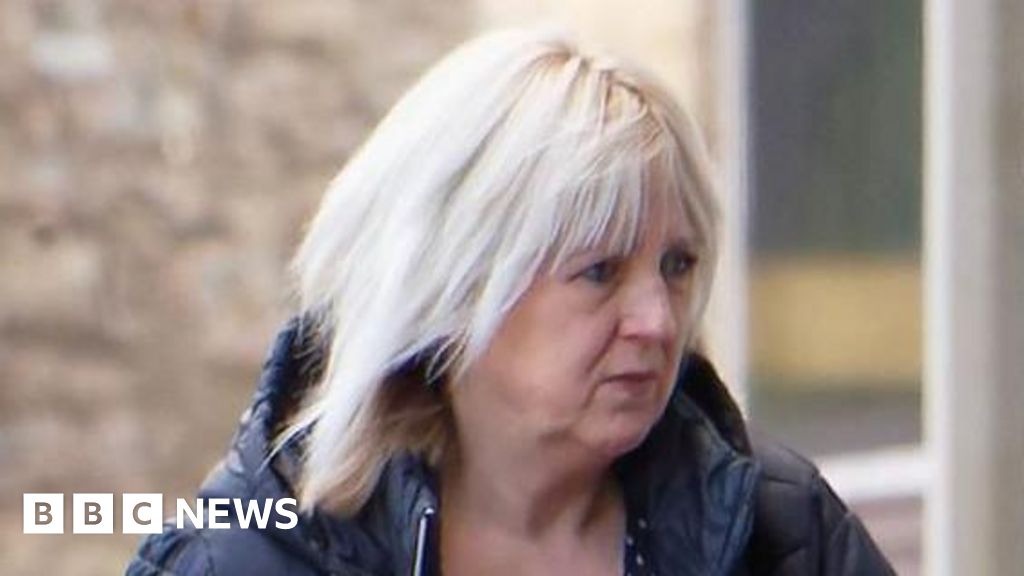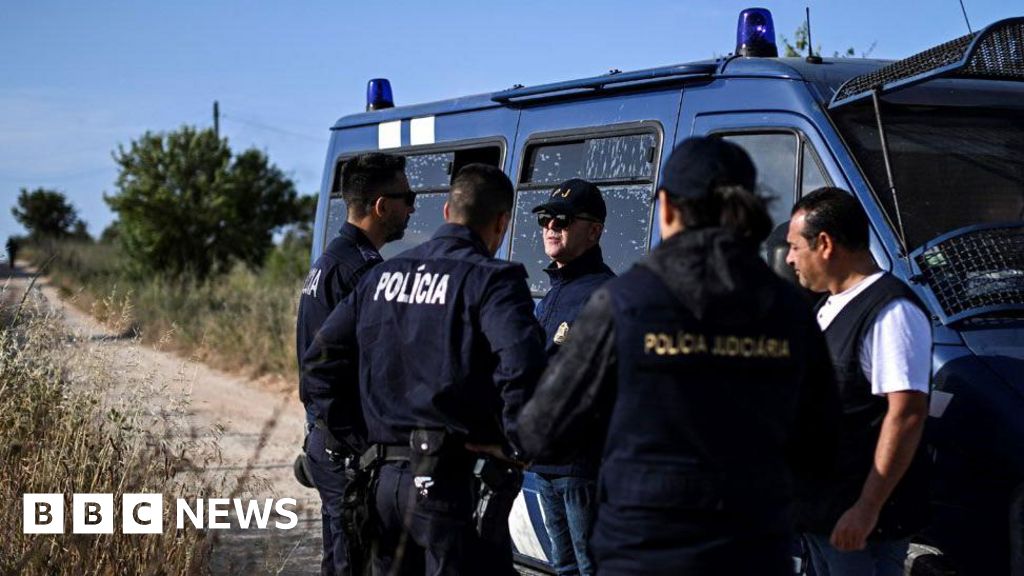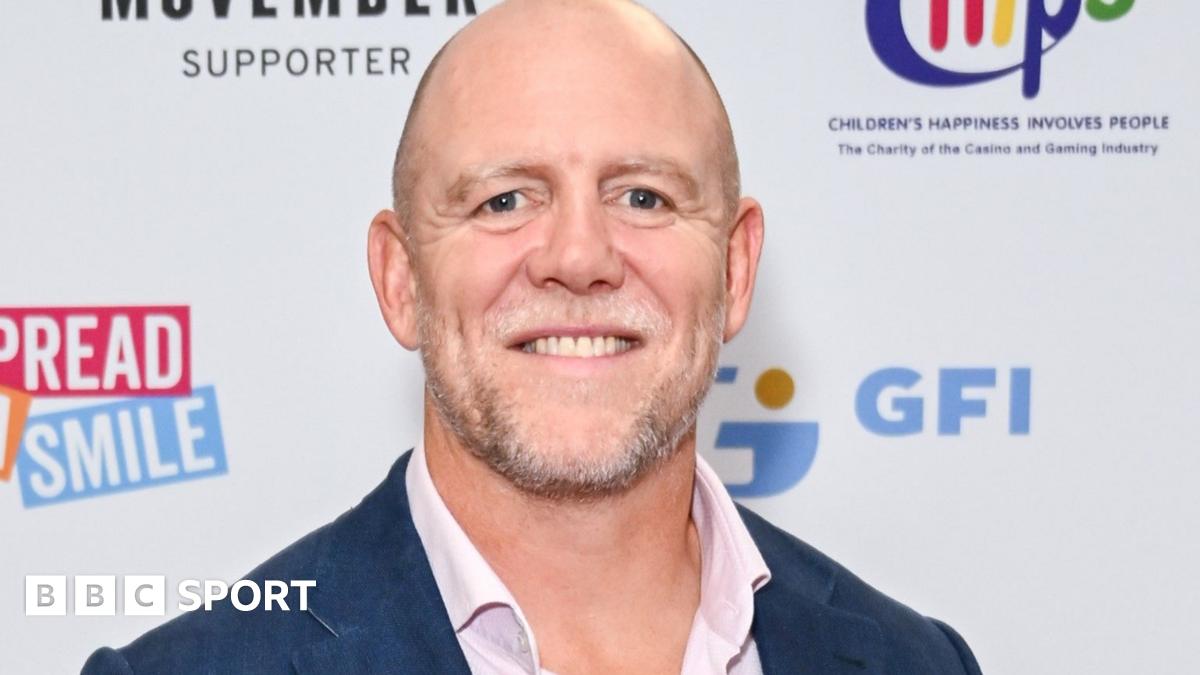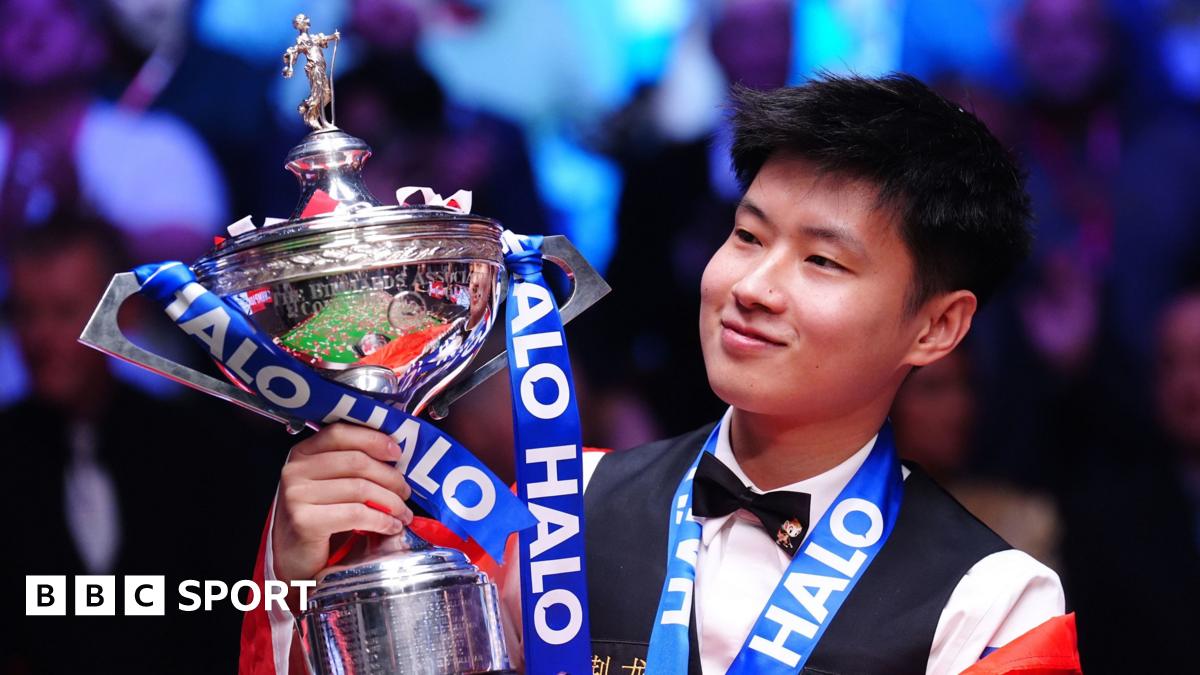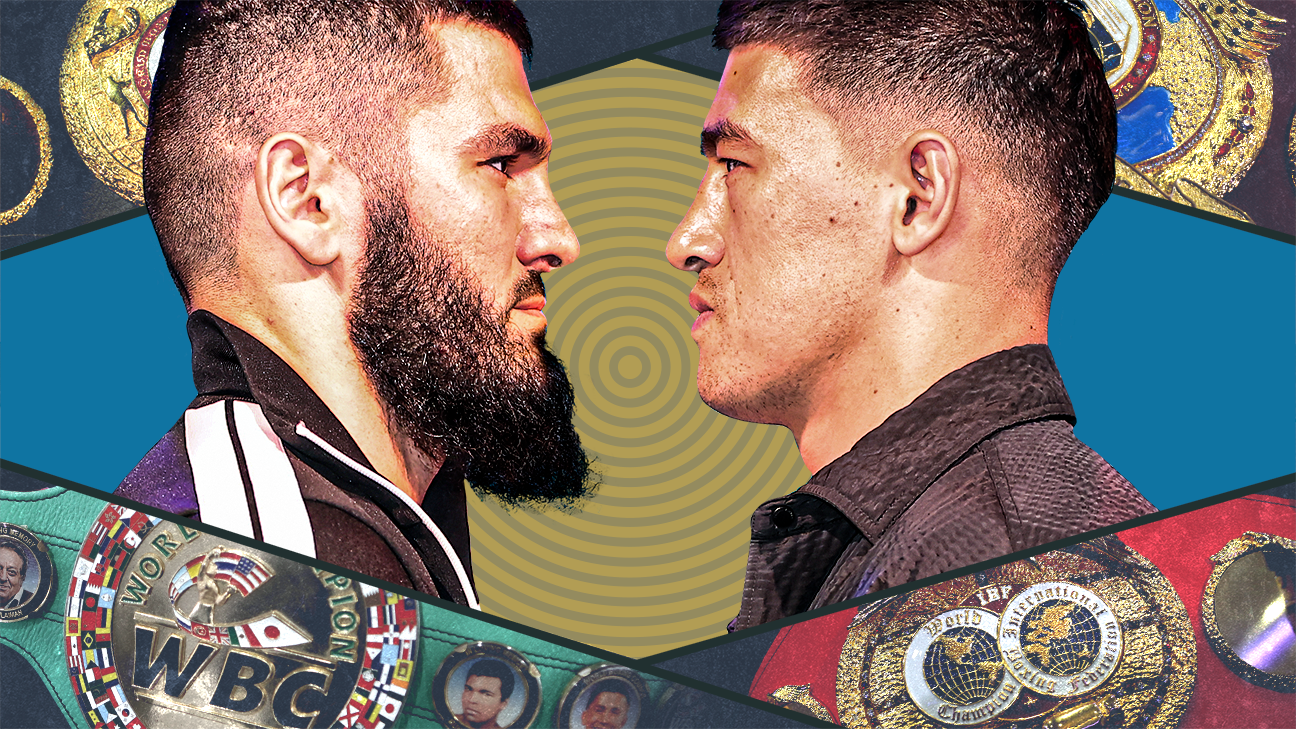Jean Mackenzie
Seoul correspondent
Watch: Lee Jae-myung speaks behind bulletproof glass at a campaign rally
The striking feature of this election has been the leading opposition candidate, Lee Jae-myung, campaigning in a bullet-proof vest.
At a recent rally, he was escorted to the podium by close protection officers, ready to shield him with their ballistic briefcases. He then addressed the crowd from behind bullet-proof glass, under the gaze of rooftop watchers.
This is not South Korean politics as usual. But South Korea has not been itself lately.
It is still recovering from the martial law crisis last December, when the president, Yoon Suk Yeol, tried to orchestrate a military takeover.
He failed, because of resistance from the public and politicians, and was impeached, triggering this snap election to choose his successor.
But the chaos Yoon unleashed that night has festered.
While stuck in limbo, without a president, the country has become more polarised and its politics more violent.
At street protests earlier this year it became commonplace to chant for various political leaders to be executed. And since launching his presidential bid, Lee has been receiving death threats, and his team say they have even uncovered a credible plot to assassinate him.
This election is an opportunity to steer South Korea back onto safer, more stable ground, and heal these fractures.

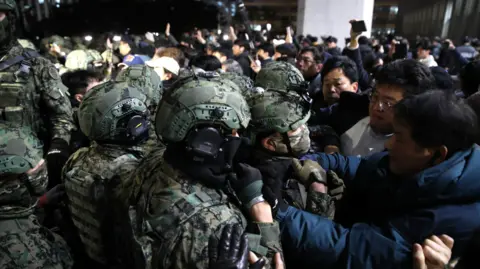 Getty Images
Getty Images
Martial law shocked South Koreans, sparking mass protests
Given this, the ruling party was always going to struggle, marred by President Yoon's self-defeating coup. But rather than break away from the disgraced former president, the conservative People Power Party (PPP) has chosen a candidate who repeatedly defended Yoon and his actions.
Kim Moon-soo, Yoon's former labour minister, was the only cabinet member who refused to stand and apologise during a parliamentary hearing into martial law. He said sorry only well into his campaign, after he had won Yoon's public endorsement.
This has turned the election into more of a referendum on martial law than anything else. Given most of the public overwhelmingly rejected the move, it has also virtually gilded the path for the opposition leader Lee, who famously livestreamed himself scaling the walls of the parliament complex, to get inside and vote down the president's order.
Now the Democratic Party politician portrays himself as the only candidate who can ensure this never happens again. He has said he will change the constitution to make it more difficult for future presidents to declare martial law.
"We must prevent the return of the rebellion forces," Lee urged voters at his recent rally from behind fortified glass.
Such promises have pulled in people from across the political spectrum. "I didn't like Lee before, but since martial law I now trust and depend on him," said 59-year-old Park Suh-jung, who admitted this was the first time she had attended a political event.

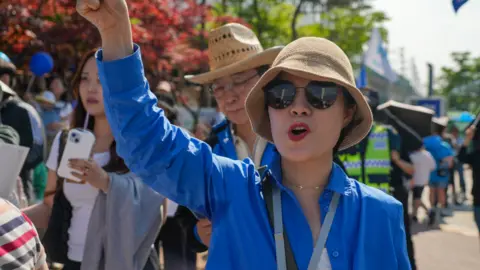 BBC/ Hosu Lee
BBC/ Hosu Lee
Park Suh-jung has never attended a political rally - until now
One man in his 50s said he was a member of another smaller political party, but had decided to back Lee this time: "He is the only person who can end Yoon's martial law insurrection. We need to stop those who destroyed our democracy."
Most recent polls put Lee about 10 points ahead of his rival Kim, but he was not always so popular. This is his second time running for president, having lost out to Yoon three years ago. He is a divisive character, who has been embroiled in a series of court cases and political scandals. There are many who do not trust him, who loathe him even.
Kim, hoping to capitalise on this, has branded himself "the fair and just candidate". It is a slogan his supporters have adopted, many seemingly backing him not for his policies, but because he is not Lee.
"I don't like Kim but at this point there's no real choice. The other candidate has too many issues," said one elderly woman who is planning to vote for him.
Kim has charted an unusual political path. As a student who campaigned for workers' rights, he was tortured and imprisoned under South Korea's right-wing dictatorship in the 1980s but then moved sharply to the right himself.
He was picked by the party base, many of whom are still loyal to Yoon. The party leadership, realising he was not the best choice, tried to replace him at the last minute with a more moderate, experienced politician, only to be blocked by furious members.
This has left the party weak and divided, with many suspecting it will splinter into rival factions after voting day. "Haven't we already imploded?" one party insider said to me recently, their face crumpled in their hands. "This is a miserable campaign."
"Choosing Kim is the biggest mistake the conservative party have made in this election, and they do know that. They will have to be held accountable for this decision," said Jeongmin Kim, the executive director of Korea Pro, a Seoul-based news and analysis service.

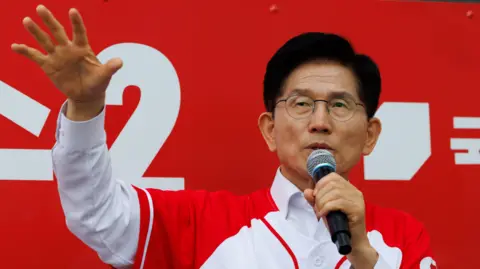 Getty Images
Getty Images
Kim Moon-soo did not speak out against martial law until after launching his campaign
Lee has seized this opportunity to hoover up centrist votes. He has shifted his policies to the right, and even claimed his left-leaning party is, in fact, conservative.
This, despite his reputation as a staunch leftist. He grew up in a slum outside Seoul, working in factories rather than attending school, and is someone who has previously quoted US senator Bernie Sanders.
But gone are his previous pledges to introduce a universal basic income. This time, he is courting South Korea's powerful conglomerate businesses, the chaebols. He has even incorporated the conservative colour red into his own blue logo, and hits the campaign trail wearing red and blue trainers.
He has rebranded his foreign policy too. Typically, his Democratic Party is cautious about Korea's security alliance with the US, preferring to prioritise relations with China and North Korea.
But Lee is casting himself as a "pragmatist" who can adapt to a changing security environment. "The US-Korea alliance is the backbone of our national security. It should be strengthened and deepened," he said in a recent televised debate.
All this has left voters and diplomats here unsure of what he really stands for, and what he will do if elected - though this seems to be the point.
Ms Kim, Korea Pro's analyst, believes his makeover is more genuine than might appear. "He was already high up in the polls, so he didn't need to work hard to win votes," she said. "I think he is playing a longer game. He wants to be a popular leader, someone who can be trusted by more than half of the country."
Watch: To vote or not to vote? South Korea’s ‘dilemma’ election
Bringing the country together will be the biggest challenge for whoever wins.
When people vote on Tuesday, it will be six months to the day since they came out onto the streets to resist a military takeover.
After months of chaos, they are desperate to move forward, so the country can start addressing pressing issues that have been on hold, including tariff negotiations with US President Donald Trump.
But more than anything they hope this election can restore their own confidence in their democracy, which has been badly shaken.
At a baseball game in the capital Seoul last week – arguably the only place where Koreans are as tribal as they are about politics – both sides were united, acutely aware of this election's importance.
"I'm really concerned about our democracy," said Dylan, a data engineer. "I hope we have the power to save it and make it greater than before. My vote is a piece of power."
"The next president needs to show people clearly and transparently what he is doing," said one man in his mid-20s. "We need to watch him carefully."
If Lee is to win, and by the margin the polls suggest, he would have a solid mandate, as well as control of parliament, giving him three years to implement major political reforms.
That could be good for rebuilding South Korea's stability but would come with its own challenges, said the political analyst Ms Kim.
"If Lee wins, he will have a lot of power. {Given how Yoon behaved} he will need to be very responsible when using it."

 1 day ago
19
1 day ago
19
